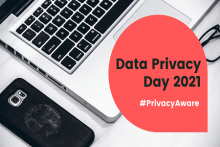How Social Media Taxes Can Burden News Outlets: The Case of Uganda
In July 2018, the government of Uganda implemented a tax on individual users of social media platforms. In the first three months following the introduction of the tax in the country, internet penetration dropped from 47 percent to 35 percent. Given that a significant amount of news circulation now happens via social media and messaging apps, how might this new tax impact the news media ecosystem?
Mapping Digital Disinformation around Elections: A Case Study of Pakistan’s 2018 General Elections
The 2018 general election represented one of the first times digital disinformation occurred on a massive scale in Pakistan.
NEW INTERNATIONAL STANDARDS NEEDED TO PROTECT THE OPEN INTERNET
NDI requests suggestions and inputs on the draft open internet principles framework to ensure its contents are led by diverse stakeholders.
Given the rising tide of internet censorship, NDI collaborates with CIMA and CIPE to develop framework for ensuring access and protecting online expression.
From the post:
NEW CASE STUDIES HIGHLIGHT CIVIL SOCIETY RESPONSES TO INTERNET THREATS
CIMA's new digital report provides on the ground examples of groups that have successfully fought for policies and norms that strengthen Internet freedom and digital rights.
WATCH THE IGF PANEL ON THREATS TO DEMOCRATIC PROCESSES ONLINE, 12/21/17
The panel will include discussions of technical censorship and throttling by ISPs, the legal implications of surveillance and cyber laws, and the challenges posed by digital disinformation, fake news, and online trolling.
The Internet Governance Forum took place this year in Geneva, Switzerland from December 17th - 21st. Watch the CIPE, CIMA, and NDI organized panel, "The Distributed Denial of Democracy: Threats to Democratic Processes Online"
IGF 2017 RECAP: WHY OPEN INTERNET MATTERS FOR DEMOCRACY
At the Internet Governance Forum, CIPE discusses inclusive online dialogue, disinformation, and democratic governance.
From the post:
WHY ARE PAKISTANIS UNABLE TO CONNECT WITH THE DIGITAL RIGHTS MOVEMENT?
Despite the fact that nearly 50 million Pakistanis now use the internet and the number of cybercrime cases is increasing, why do some people in Pakistan consider digital rights as a non-issue?
"Digital rights are a non-issue," remarked my journalist friend when we were debating on why the people of Pakistan should know about digital rights.
WHAT NEXT FOR ADVOCACY AGAINST NETWORK DISRUPTIONS?
The Global Network Initiative's (GNI) David Sullivan summarizes the joint GNI and Open Internet for Democracy Initiative-led session at the 2018 Internet Governance Forum, calling for a broader array of actors to join the movement.
APP SECURITY FLAWS COULD CREATE ADDED RISKS FOR LGBTQI COMMUNITIES
Are apps and websites that cater to vulnerable communities failing to adequately address the inherent security risks faced by their users?


